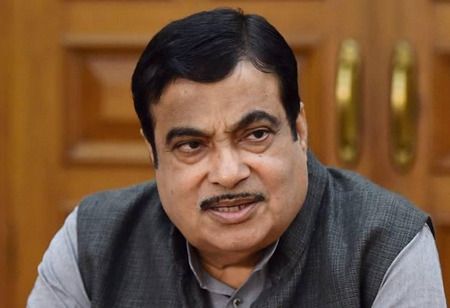
Nitin Gadkari Blames 'Rich Petrol Lobby' for E20 Backlash


Nitin Gadkari, the Union Minister for Road Transport and Highways, responded to rising social media concerns regarding E20, an ethanol-blended fuel, by claiming that petroleum industry lobbying is behind opposition to this initiative.
His remarks followed public criticism of the government's national program to mix petrol with 20 percent ethanol, which seeks to reduce emissions while boosting farmer earnings.
E20 consists of petrol combined with 20 percent ethanol, an alcohol primarily derived from sugarcane and grains like maize and rice.
Also Read: Indian Farmers Won: Story of How PepsiCo Lost its 'Potato Chips' Battle in Delhi High Court
The fuel was first introduced at select pumps in April 2023 and has been implemented nationwide since April 2025, substituting the 10 percent ethanol blend known as E10 that most vehicles are engineered to accommodate.
Presently, Indian automobiles can operate on E20 petrol following minor engine modifications to avoid corrosion and related problems.
India ranks as the world's third-biggest oil consumer and relies on imports for approximately 88 percent of its crude oil needs, leaving it exposed to geopolitical fluctuations that may affect oil prices.
Also Read: A BUNCH-Tech to Tech-Zenith; Lessons from Satya Nadella's Leadership Journey
Social media discussions have emerged regarding E20 fuel's effects on vehicles. PTI reports that automotive specialists indicated that using 20 percent ethanol-blended petrol might cause fuel efficiency to decrease by 2-5 percent, varying by vehicle type.
These experts also observed that non-E20 compatible older vehicles might experience long-term deterioration of gaskets, fuel rubber hoses, and pipes, though not right away.
Previously, the Oil Ministry addressed these worries, declaring that criticisms claiming E20 causes "severe" fuel efficiency reduction are "unfounded." Nevertheless, it failed to specify the exact percentage decrease in fuel efficiency.
Gadkari drew attention to ongoing ethanol and isobutanol research while stressing India's need to decrease reliance on imported fuels through alternative energy sources, including biofuels, hydrogen, and electric transportation.
"We have an import of 22 lakh crore. Is it not appropriate that we have to make in India with our own strength? And with our own capabilities, there should be no import. We can stand on our own strength. So we are working on that," Gadkari said at the 7th Auto Retail Conclave of FADA.
Also Read: The Persisting Case of India's Fight against Tuberculosis
"We want to concentrate on alternative fuel, biofuel, hydrogen, electric, whatever the choice may be, even in the marine engine. Now we are planning to use methanol," Gadkari says.